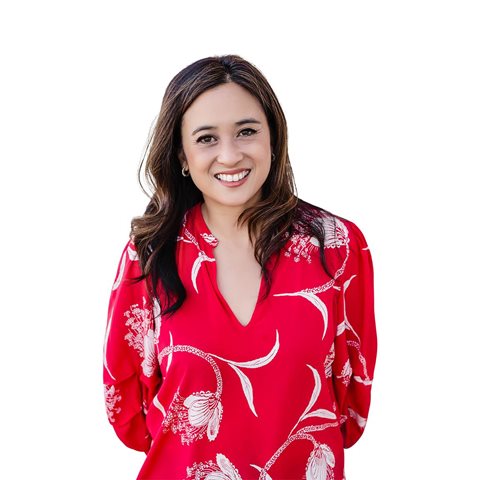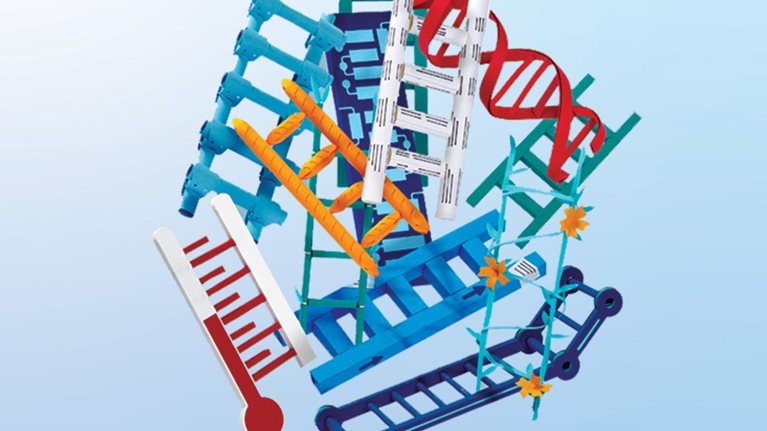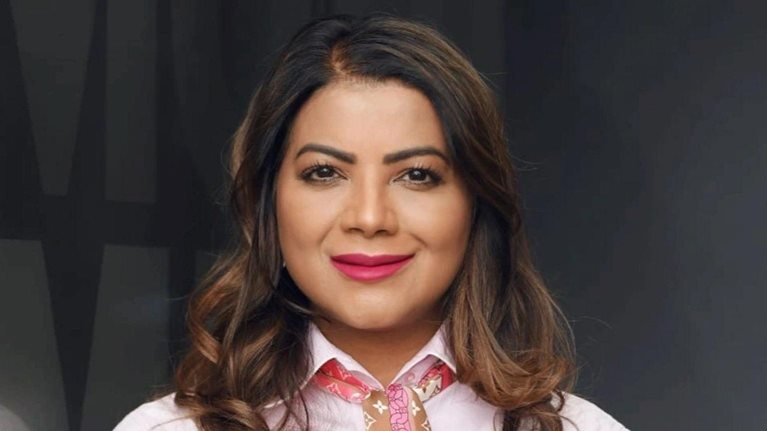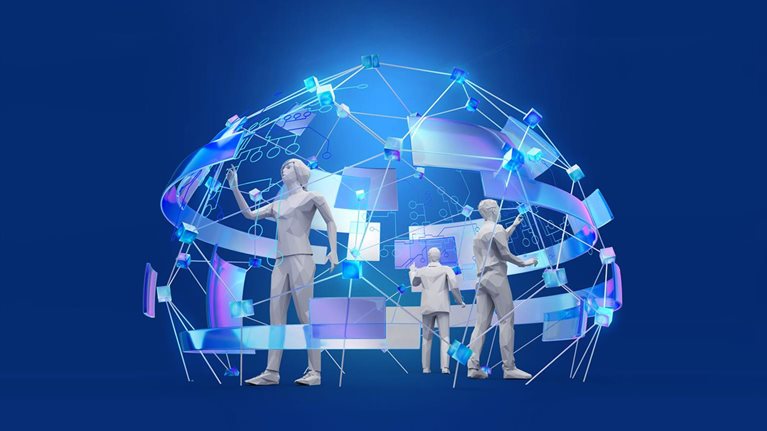Karlie Kloss, founder of Kode With Klossy (KWK), and Osi Imeokparia, KWK’s CEO, say the process of coding builds more career skills than knowing how to write instructions for a computer. On this episode of At the Edge podcast, they speak with McKinsey Senior Partner Lareina Yee about how KWK’s programs teaching 13-to-18-year-old young women and gender-expansive teens how to code help enable the students to develop critical thinking skills, improve their problem-solving abilities, and participate confidently in tech careers and beyond.
The following transcript has been edited for clarity and length.
The wonderful world of coding
Lareina Yee: Karlie, when we met, you told me the most amazing story. Can you share that moment, from more than a decade ago, about when you first connected with coding and tech?
Karlie Kloss: It all started because I was—and remain—super curious about what is happening in the world. Kode With Klossy is a community of like-minded people who are passionate and curious in a lot of directions. It was curiosity that led me to a coding class more than a decade ago. That entry point was a catalyst to learning how the software and hardware of tech is built, how creative coding is, and how important it is to have people of all lived experiences building code, because technology is transforming our lives and world now more than ever.
I also realized back then that in tech spaces, there isn’t an accurate reflection of the diversity in our world, especially of women. That’s a problem. So Kode With Klossy was born out of my own nerdy interests, and then to bring other young women into these spaces through coding camps. It started simply. I put out a scholarship on my Instagram. I thought a couple of other nerdy girls like me would be excited about it. Turns out, we had thousands of applications for those 21 scholarships, and it’s snowballed from there. Now, a decade later, we have more than 11,000 young people around the world who are part of our program.
Subscribe to the At the Edge podcast
Lareina Yee: As you know, Karlie, you’re most famous for being a supermodel. You didn’t need to learn how to code. You chose to code. It’s cool to be a nerdy girl, but coding is also a cool skill to have. At the heart of Kode With Klossy is the success of the girls. Osi, tell us why you went from being this amazing tech executive to joining Kode With Klossy, and share some of the successes that the girls are having.
Osi Imeokparia: The success of our community members is central to why we do this work: to see them thrive and have purposeful careers in the world. It’s everybody from a young woman named Chloe, who’s now a software engineer at Mastercard and who wrote her first lines of code with us and found community, a sense of possibility, and a sense of agency—her ability to shape the world around her. It’s folks like Mia, who is now a data science PhD, who also felt this call to connect and to make a social impact in the world through her data science skills and her ability to use those skills to transform communities.
As you hear the stories from our community, you hear central pillars repeat themselves—for example, the idea that the members of our community view technology not in a vacuum but as a tool for creating change in the world. To see that repeated 11,000 times over is rewarding.
For me, it’s wonderful to align around a purpose-driven body of work that intersects my love of technology, my understanding that it can be a transformational tool, but then also an understanding of the lived experience, how there are headwinds in that process and how we can be of service as an organization to make those headwinds less daunting.
Lareina Yee: I love this notion of technology and coding as a transformational tool. Karlie, how has tech been a tool for transformation for you and the work that you’re doing?
Karlie Kloss: The story was always, why is this model in these spaces? Why is she interested in coding? Well, why not? Why can’t I be, and why can’t anyone? And, by the way, vice versa, why can’t somebody in tech also be interested in fashion or music? A decade ago, that was almost threatening to people. We’re in a different world now, and I’m so glad for that because people are so multifaceted.
Our scholars are dynamic. They’re young people trying to find who they want to be in the world. What’s so exciting about the rapid progress of and democratized access to tech tools is that you can use them any way you want. Last night, I was on a delayed flight, and I was playing around with a new and extraordinary AI deep-research tool. I was building a business model around an idea I had and was just kicking it around.
What’s so exciting about the rapid progress of and democratized access to tech tools is that you can use them any way you want.
Even if you’re not entrepreneurial, you can still get a thrill out of these tools. That’s the whole point. We’re not exclusively trying to make everyone become an engineer. We’re trying to open the eyes of our scholars to the opportunity to participate in the limitless potential of these tools. We need them to help shape the future—not only of tech but of all the spaces they’ll go into.
Anyone can benefit from learning to code
Lareina Yee: Osi, let me push a little bit on a couple of things that Karlie mentioned. Around 22 to 25 percent of women in the United States are computer science majors. That’s an underwhelming representation of girls and women in computer science. That has a ripple effect when it comes to really important jobs like software engineering and product management.
Part of the original idea of teaching coding was to catch up on engineering. Now, AI can do the coding levels for you. You can even “vibe code” [a more intuitive form of coding in which an AI assistant creates code from developer prompts]. There are all these capabilities. How do you think about this transformational tool and the broader set of technologies? And is it still important to learn to code?
Osi Imeokparia: I love this. I was waiting to see how long in this conversation we would go without dropping vibe coding. Zooming out for a second, and to echo something that Karlie said, we quickly realized in the evolution of KWK that the value we were creating was not just in producing software engineers. There was something crackling in our community outside of that, and there were many members of our community who didn’t end up on that pathway, but we still felt like we had made an impact and were successful.
We are producing a generation of young people who are technologists and lifelong learners of technology, and that is the output of our programming, not just the creation of engineers.
We fully embrace AI for that reason. We’re not threatened by the idea that the future won’t need as many software engineers, because that’s not the core thesis of our work. The way we’re coaching our community through this inflection point in this technology revolution is to make responsible creators and builders of AI and critical and discerning users of AI. That duality is important.
One of the new tools we’re introducing into our programming is called the AI Compass, which is a companion tool that members of our community can use to make judgment calls about when to use AI to support a desired outcome.
Then, what human-based skills are important? In many ways, the tools that become necessary are entrepreneurial skills and discernment skills around editorial judgment and taste.
If everybody is generating the same basic app, using the same AI tools, how do you have a breakthrough? How do you have innovation in a sea of lots of different generated apps? That requires you to have some sense of taste and judgment. How do you develop that? How do you have a sense of risk-taking? These are required skills. When you’re flattening and democratizing the skills, the “spiky” people who will stand out will be the people with a good sense of risk assessment.
Learning to code is more than just writing code. You are learning computational thinking. You are learning how to take a big problem and decompose it. You are learning how to find patterns and create abstraction. You’re learning how to define algorithms. You’re learning lots of different skills that can then be applied to being a great marketer, salesperson, or doctor, because now you can think in big ways and find patterns and problem solve.
Lareina Yee: Karlie, what’s your take on these, quote, unquote, “soft skills” like entrepreneurialism next to “hard skills” like coding?
Karlie Kloss: Part of what we’re providing is an experiential space to explore who you want to be. We’re thinking about the whole person and supporting that development.
Our programs are for 13-to-18-year-old young women and gender-expansive teens. These people are in a critical moment of trying to get out of their own heads and discovering who they want to become. We’re helping them to build confidence and a deep connection with their peers and near-peer leadership—many of our alumni come back as instructor assistants and help teach and implement the programs.
So there’s so much that’s happening beyond just technical skills. Of course, we also care deeply about the jobs in highly technical spaces. We want to equip a pipeline of talent who will be qualified for those spaces.
Lareina Yee: Karlie and Osi, tell me more about the demographic of your scholars.
Osi Imeokparia: We have more than 11,000 young people in over 105 countries. Around 80 percent of them identify as people of color. When they joined us, about 40 percent of them indicated they qualified for free and reduced lunch, which, as you know, is an indicator of socioeconomic needs. At least 25 languages are spoken in different homes across our community. We’re in almost all 50 US states.
Among the people in our community who are of college age, about 70 percent go on to get computer science majors or minors; the national average is about 4 percent of women pursuing those degrees. So we’re incredibly proud of that particular outcome.
The next chapter of inclusion
Lareina Yee: We’re hitting on a core point, which is that a traditional linear career path is you go to school, have a series of formal classes, choose what to do, and that kind of determines your career potential. I love the idea of saying that’s not the way the world works now.
Osi Imeokparia: Not anymore.
Lareina Yee: It doesn’t work that way. It doesn’t need to be that way. You’re not limited by the choices you make, young or older, and to me this is amazing. One of the things we’ve all talked about is that about 50 percent of your lifetime earnings come from experience capital, and the other 50 percent comes from what you learn in formal school.1
If you learn computer science in school, fabulous. If you learn technology acumen and ethics in school, fabulous. Or you can learn it as experience capital. That’s what you did, Karlie. You’re evidence of that, and that’s power.
Osi Imeokparia: Part of what’s fun and celebratory about reaching a ten-year milestone in our work is that we can reflect on the impact we’ve had and the opportunity to massively increase that impact. And that comes through embracing the duality of exactly what you’re describing, which is: It is necessary, but wholly insufficient, to invest in individual skill building and credentialing.
You also need to examine the conditions for success that exist—or don’t exist—specifically within corporate spaces. So you need to hold both an individual change-making and a systemic change-making lens.
That is the next decade of our work. That is where we think through the corporate partnerships that we’ve been so grateful to develop over these last ten years. Through that partnership with like-minded, values-aligned companies, it’s the processes, practices, and policies that we hope we can start to change.
Because you’re absolutely right. Your research on the “broken rung”—this phenomenon of young women not being promoted into their first manager role at the same rate as their male peers—that phenomenon is sitting right in front of where our young people in our community are about to be.2
Karlie Kloss: Lareina, you are championing exactly this point and these problems that continue to exist and be perpetuated. The first step to a solution is bringing it into the light, and you are doing that.
Lareina Yee: I think you captured it: the idea that it’s not just learning the technical capabilities of being able to code or use AI tools. It’s the conjunction of the mindset shift. That’s the aha and the magic.
And maybe just to ask you what you think: A lot of people feel like jobs and opportunities are a young person’s game. What if I’m a 50-year-old woman, a 42-year-old woman, or a 45-year-old man, and I’m saying, “I need to participate in this.” What advice or thoughts would you have about building technical skills?
Osi Imeokparia: I mean, we’re all in this boat, right? I am all the ages you mentioned. I’m actually 47, if we’re going to put it on the record. But I got a computer science degree, and that was not the magic unlock. That is not going to help me in this moment of AI change. I also have to go back to the drawing board and relearn skills, but I have the benefit of having a technical foundation and the confidence to not be scared to meet this moment. Courage is the input, and confidence is the output of your experiential learning.
The other piece is that so much of the foundation of our pedagogy is that you have to do it. You cannot only talk about it in the abstract. Project-based learning allows you to get your hands dirty. And so part of this is just trying something. You could be a mom who has to organize all the thousands of emails you get from the school every day about something happening with your child. Try to use AI to solve a real problem that you are personally having.
Project-based learning allows you to get your hands dirty. And so part of this is just trying something.
Personalizing the learning journey, which is, again, something we have learned through our programming, is really important.
Shaping an equitable tech future
Lareina Yee: Karlie, what do you tell people in creative industries who are scared of AI and technology and worried about being disintermediated? How do you help them—or how do you think about that?
Karlie Kloss: I acquired i-D magazine about a year and a half ago, and we’ve tried to be principles-first in thinking about how we rebuild certain parts of the business. There are a lot of antiquated aspects that are not protecting and preserving creative integrity.
To me, what matters is: How do we utilize technology to preserve and protect humanity—the creativity? How do we use technology to further unlock that?
I think people’s innate reaction is fear. But if that’s your only response, you’re going to get left behind. What I care deeply about is: How do we use technology—because it’s happening, AI is happening—to further unlock our human potential?
To me, what matters is: How do we utilize technology to preserve and protect humanity—the creativity?
There’s a question, too, of where we want to draw the line. I’m a model—someone could take my physical IP [intellectual property] and turn it into an image and sell against that. How do I feel about that? I don’t feel good about that. So how do I protect that?
We’re opening Pandora’s box. I try to be an optimist but also a realist about it. AI is happening. How do we ensure that equity is guiding its development? Because that has not always been the case at moments of change and inflection in history. Women need to be part of this. People of all lived experiences need to help inform, shape, and guide it.
I try to be an optimist but also a realist about it. AI is happening. How do we ensure that equity is guiding its development?
Osi Imeokparia: That same phenomenon is happening on the technology side, too. In these moments, you elevate the human creative engines around editorial and taste. That doesn’t go away.
But these things aren’t just going to happen. We need to take active roles in shaping the outcomes we want.
Karlie Kloss: This is why we need policymakers who understand the significance of this moment—and of this technology as well.
Lareina Yee: I hear so much urgency in both of your voices, and certainly in what you’re saying. The typical question would be, “Ten years from now, what would you like to see?” But ten years is so far away.
In the next two years, what would you love to see? Give us a sense of what you see around the corner—leveraging all these technologies, moving Kode With Klossy forward, or some of your entrepreneurial activities.
Osi Imeokparia: In two years—at least from the Kode With Klossy work—I hope that we’ve made inroads, as I described, with some of our corporate partners around structural change. Specifically, I’m thinking about how we focus on the retention of women in the workplace and on that broken-rung phenomenon.
Have we created policies, programs, and practices to diffuse some of that innate inequity in how we think about that process? That is such a concrete, specific thing that feels achievable with like-minded, ambitious companies.
As we think about the next ten years of our organization, we’re looking to the 70 percent of our community who are now 18 years and older, and the set that is 21 and older who are in the workforce or early in their careers, and we’re looking at ways to support them with future programming.
Why community is crucial to being persistent
Lareina Yee: Osi, women who brave majors such as computer science, electrical engineering, and biology may often find themselves as the “only” in the room, in the classroom. That’s not uncommon, even though we hope it will be different soon. What’s your advice for someone experiencing being the only and trying to study STEM?
Osi Imeokparia: I’ve lived this. I have been the only Black woman in many rooms, in many educational experiences. The answer lies in what we’ve seen in our work at KWK and through my own experience: Everything is better with friends.
It’s about finding your tribe, your community, finding people who are situationally in the same place. Sometimes you need a coach, sometimes you need an objective outsider to just push you. But doing these things with others who are similarly ambitious, similarly excited about technology, makes everything better.
Lareina Yee: Karlie, you grew up in St. Louis. Most people think of your career starting when you were 15 and became a model, but before that, you were an excellent math and science student. That’s where you were headed. Thinking back on that, we know having buddies, mentors, and sponsors makes a huge difference. Who encouraged you and helped you have the confidence to be an excellent math and science student at a young age?
Karlie Kloss: I had a lot of nerdy buddies who are still my best friends. One’s a doctor, one’s an engineer, one’s an accountant—they just happened to choose slightly more traditional paths with their brilliance.
I’m lucky to have two parents who are very supportive and very different. My mom’s an artist, and my dad’s an emergency room doctor. I’ve always had this fascination with the sciences. It’s funny that I ended up in a creative field. Even today, I still take classes at NYU [New York University]. Not because they’ll open any career opportunities for me at this point in my life, but because I love to learn and be exposed to different things. I love finding other people and surrounding myself with like-minded folks.
Osi Imeokparia: Nerdy girls unite. Let’s do it.
The role of leadership in tech transitions
Lareina Yee: I love nerdy girls. So, Karlie—you know McKinsey well. We spend a lot of time advising some of the same business leaders you spend time with. And we are thinking a lot about AI. Give us some advice on how we can participate in the AI transformation over the next couple years.
Karlie Kloss: Well, I love that you’re asking us for advice. Again, I have a high school education, but I’ll give you my two cents. Embrace this moment. There can be a lot of fear in companies. The opportunity is yours to take your work to a whole other level.
Lareina Yee: Osi, same question. Give McKinsey some advice. Challenge us.
Osi Imeokparia: As a leader, when you ask your team to do something, it’s always best not to ask them to do things you aren’t doing.
I would say, move away from just AI mandates to creating your own personal AI mastery as a leader. Show your team the transformation you are asking them to make. Can you put your proverbial money where your mouth is?
Show your team the transformation you are asking them to make.
It’s really a leadership question at this moment. How are leaders galvanizing and creating the conditions for the workforce to be transformed?



